- HHC interacts strongly with CB1 receptors, creating intoxicating effects, whereas CBD blocks those receptors and won’t get you high.
- HHC occurs only in trace amounts in cannabis and is typically made in labs by converting hemp-derived CBD.
- Both are federally legal, but HHC faces more regulation. While CBD is widely accepted, many states restrict or ban intoxicating cannabinoids like HHC.
- CBD may reduce anxiety and inflammation without impairment, while HHC can cause euphoria, anxiety, or paranoia depending on the dose.
- There's far more clinical data on CBD’s therapeutic benefits, while HHC is relatively undertested.
As hemp-derived cannabis products evolve, I think we should take a step back and revisit the basics.
Cannabidiol (CBD) and hexahydrocannabinol (HHC) should be considered classic cannabinoids at this point. CBD has been the non-psychotropic king of cannabis for years, while HHC—even though it’s newer to the market than delta 8 THC—has effects that get closer to delta 9 THC than delta 8 does.
Of course, CBD isn’t intoxicating like HHC. Mistaking one for the other could lead to an unpleasant surprise.
If you’re stuck trying to decide between an HHC disposable and a CBD vape, you have some things to consider. Let’s look at them.
Is HHC the same as CBD?
HHC and CBD could hardly be more different, as far as effects are concerned.
Trust me, you don’t want to mistake HHC gummies for CBD gummies, which could land you in a scary (or, at least, uncomfortable) spot. No one wants to consume a product they assume is nonintoxicating, only to find themselves high thirty minutes later.
I’ve seen products that blend HHC and CBD together, maybe with a few extra cannabinoids sprinkled in. That’s one reason I always check the certificate of analysis (COA) before trying anything new. Marketing can be misleading, but lab reports don’t lie.
While HHC and CBD are mostly worlds apart, they do share a few attributes. I’ll get into that soon.
What is HHC?
Add a few extra hydrogen atoms to THC and, just like that, you have HHC. A small chemical tweak makes a huge difference.
Delta 9 THC and HHC are structurally similar analogs (not isomers), both packing a serious psychotropic punch—except delta 9 is stronger. That said, HHC carts aren’t anything to scoff at, especially compared to other hemp-derived cannabinoids.
Your body could respond to cannabinoids differently than mine, but many users describe HHC’s intensity as falling somewhere between delta 8 THC and delta 9. I’d say my experience is pretty in line with that claim. Remember, hemp-derived delta 8 is only around half as strong as delta 9, putting HHC in the middle.
I’ve noticed that some cannabis users in areas without legal marijuana turn to HHC instead of the more common delta 8 THC. It’s stronger, and these days, it’s usually not too hard to find. Many reputable sellers offer HHC products.
Hydrogenation enhances THC's chemical stability, by the way, which gives HHC products a longer shelf life—a big plus for retailers and consumers.
THC naturally degrades over time—particularly with added heat and UV exposure—converting it into CBN and resulting in a gradual loss of potency. I still wouldn’t store my HHC near a sunny window, though. No cannabinoid is invincible.
What is CBD?
CBD is the biggest star in the nonintoxicating hemp cannabinoid universe.
I’ve seen certain cannabis strains test higher in CBD than others, but whenever CBD is scarce and delta 9 THC is abundant, you’ve got marijuana, not hemp. CBD is hemp’s primary active ingredient, after all. In marijuana, it’s definitely in second place.
The word “active” is key here. Young hemp flower isn’t packed with CBD. Instead, it’s high in CBDA, CBD’s biosynthetic precursor. Over time—or with heat, sunlight, or even just oxygen exposure—CBDA loses its carboxylic acid group and turns into CBD. This process, known as decarboxylation, is what “activates” acidic cannabinoids in the flower. (The same is true with THCA and THC in marijuana flower.)
After hemp’s federal legalization, CBD products ruled the marketplace. I still remember when interest took off in the late 2010s. U.S. consumers could access CBD legally for the first time following the passage of the 2018 Farm Bill. Before that, federal law didn’t distinguish high-CBD hemp bud from THC-rich marijuana.
Unlike THC, CBD won’t get anyone high, no matter how much they take. It just doesn’t work that way. Instead, it’s gained its reputation thanks to a host of potential therapeutic effects, including pain and inflammation relief.
What do HHC and CBD have in common?
HHC doesn’t exist in a separate world from CBD. The overlap between HHC and CBD is there if we know where to look, despite their many differences.
Legality
Legally speaking, CBD and HHC do share common ground. Both are federally legal substances to sell and possess in the U.S. currently, as long as they contain under 0.3% delta 9 THC by dry weight.
As with marijuana, each state has the final say on which hemp products can be sold within its borders. CBD has faced minimal resistance, while HHC, delta 8 THC, and other intoxicating cannabinoids have been met with major pushback. Some states have even banned them outright.
How strictly these laws are enforced varies from state to state, though many online hemp retailers won’t risk shipping to areas with tight restrictions. My advice? If HHC (or even CBD) isn’t permitted where you live, whether in the U.S. or elsewhere, it’s best to play it safe and steer clear.
Origins
CBD and HHC are both phytocannabinoids, meaning they’re found naturally in cannabis plants. There is, however, a big difference in how much is present.
While CBD is highly abundant in hemp (with the exact percentage varying by strain), HHC is only found in trace amounts. HHC in commercial hemp products isn’t directly extracted from the plant. Instead, it’s converted from CBD in a lab, which I’ll break down later.
I’ve encountered people who assume that all (or at least most) commercial cannabinoids are found in actual hemp, but that’s not always the case. Take THC-O, for example—it skyrocketed in popularity a couple of years back, only to be deemed a Schedule I controlled substance in the United States shortly after. The DEA ruled that THC-O isn’t a naturally occurring hemp derivative, which was enough to push it off the legal market.
Therapeutic potential
For now, let's address whether research exists on HHC and CBD—not how much of it there is. I’ll get into that later.
Both cannabinoids have shown therapeutic potential, but researchers have a much clearer picture of what CBD can do. HHC is still largely unexplored, and I’ve found that there’s far less concrete information available on its effects.
From what we do know, CBD’s potential benefits include:
- Anti-inflammation
- Seizure reduction
- Pain relief
- Neuroprotection
- Acne reduction
- Better-quality sleep
- Nausea relief
I’ve also seen research suggesting that CBD might help manage certain mental health conditions, like anxiety and post-traumatic stress disorder. Still, it seems to be most effective when used alongside therapy and medication.
One of the most impressive things about CBD, in my opinion, is its role in epilepsy treatment. The fact that a CBD-based medication, Epidiolex, is being used to treat drug-resistant seizures in people with Lennox-Gastaut and Dravet syndromes is a huge deal. It shows just how far cannabis research has come.
As for HHC, early studies suggest it may share pharmacological properties with THC, which I'd say is still an under-researched cannabinoid in its own right. There’s a study that hints at HHC having potential as an antitumor treatment. But until more research comes out, it’s too soon to say anything for sure.
What’s the difference between HHC and CBD?
Both are cannabinoids, but HHC isn’t an offshoot or biosynthetic descendent of CBD. They occur independently, and differ in effects, natural abundance, and chemical composition.
Effects
I’ll address the obvious first: HHC will get you high, while CBD won’t.
HHC has a notable affinity for CB1 receptors in the human endocannabinoid system (ECS). Activating CB1 receptors triggers a flood of dopamine in the brain, which is why we feel high after consuming CB1 agonists like THC and HHC.
Those of us with a high THC tolerance might only get a light buzz from HHC products. Still, that doesn’t mean they’re not psychotropic, because they absolutely are. I’ve seen people underestimate HHC’s potency, only to be caught off guard by how strong it actually is.
It’s the opposite case with CBD, a CB1 antagonist. Rather than binding to CB1 receptors and getting us high, it blocks psychotropic cannabinoids like THC and HHC from binding as effectively. Hence, taking CBD alongside THC might reduce the intensity of a high—I’ve even tried using it myself to soften stronger-than-expected effects. (The result was unclear for me.)
Side effects are another big difference. There’s some overlap, but psychotropic cannabinoids tend to carry more risks. HHC can incite anxiety, paranoia, or even hallucinations in some users, while CBD and other non-psychoactive cannabinoids (CBC, CBG, etc.) typically don’t cause extreme psychological reactions.
Chemical composition
Structurally, HHC and CBD are unique substances.
CBD and the delta variants of THC are isomers, meaning they’re built from the same atomic components but arranged differently. They all share the same molecular formula (C₂₁H₃₀O₂) and mass (314.45 g/mol). It has always fascinated me how a simple shift in structure can completely change how a cannabinoid interacts with the body.
Then there’s HHC. It’s not an isomer of either CBD or THC, and it has its own distinct formula: C₂₁H₃₂O₂. Those extra hydrogen atoms might not seem like much, but they make a real difference. A slight increase in bulk also gives HHC a heavier molecular mass (316.485 g/mol).
Extraction
There’s no shortage of CBD in hemp. As the plant’s main active compound, extraction is a relatively straightforward procedure. There’s a catalog of techniques for extractors to choose from, including the use of CO₂, butane, propane, and even steam to pull CBD from the plant.
HHC is a different story. Even though it occurs naturally in hemp, the amounts are so tiny that traditional extraction isn’t practical. The only cost-effective way to get enough for commercial use is through semi-synthetic production. It all starts with hemp-derived CBD, which is distilled and isomerized. A simple shift in a double bond turns CBD into delta 8 THC, which is then hydrogenated to create HHC.
Cannabis bud presents its own challenge. Sadly, no amount of selective breeding will ever produce a high-HHC cannabis strain—HHC is just too scarce. When I see “HHC flower” on the market, I know I’m actually looking at hemp flower sprayed with HHC distillate. The product is still rich in CBD, just with a little extra kick from the HHC.
Research volume
It might come as a surprise, but CBD and HHC were identified around the same time (in 1940 and 1944, respectively).
Both have been on scientists’ radar for decades. But awareness doesn’t always mean research, and while CBD has undergone decades of study, HHC remained largely untouched until its commercial debut. Studies are still few and far between.
Metabolization
Cannabinoids don’t pass through our bodies unchanged. The liver breaks them down into different metabolites along the way.
For CBD, that means first converting into 7-OH-CBD, followed by 7-COOH-CBD. HHC has a separate biosynthetic path, becoming 9R-HHC-COOH and then 11-OH-9R-HHC.
The 9S-HHC stereoisomer—which is still HHC, just one of its mirror images—follows a slightly different path, becoming 9S-HHC-COOH and 11-OH-9S-HHC. Since commercial HHC products contain a mix of the 9R- and 9S-HHC stereoisomers, both metabolite forms are in play.
It's unclear whether HHC can help someone pass a drug test. Most urine screenings seek out THC-COOH, a metabolite of THC, which HHC doesn’t produce. Either way, we don't know if HHC's metabolites are similar enough to trigger a positive result.
CBD is safer in this scenario, as its metabolites alone won’t make a person fail a drug screening. Just be careful with broad- or full-spectrum extracts that contain trace amounts of THC. To be totally certain, it’s best to avoid cannabis altogether before a test.
CBD vs. HHC: FAQ
Is HHC stronger than CBD?
Well, that depends on how we’re interpreting “stronger” here. If the only goal is to get high, then absolutely, HHC is the stronger option. CBD isn’t psychotropic at all.
But strength isn’t just about how intoxicating a cannabinoid is (or isn’t). These compounds do a lot more in the body than just produce a high, which makes comparing their overall strength tricky.
CBD is powerful, whether or not it can get someone high. It’s still a psychoactive cannabinoid, after all, just like any substance that alters our brain chemistry and influences mood, stress, or even pain perception.
Is CBD healthier than HHC?
Again, it really depends on what you’re asking.
Neither CBD nor HHC is an essential nutrient, so our bodies don’t need them to function. But if we’re talking about therapeutic potential, CBD seems to have the edge—at least based on what we know so far. It’s been studied far more extensively than HHC, though, so there’s a good chance we just don’t know the full scope of HHC’s benefits yet.
That said, HHC is also more likely to cause serious side effects, particularly psychological ones like anxiety or paranoia. CBD very rarely comes with those risks.
I’d even argue that CBD is the “healthier” option simply because it’s easier to find reputable, third-party tested products. While there are definitely low-quality or contaminated CBD products out there, HHC products are just less common overall.
Which is better: CBD or HHC?
Let’s wrap things up with the big, very subjective question: is CBD better than HHC?
There’s really no fair way to answer that. HHC and CBD are distinct cannabinoids, each with their own effects and benefits, so it all depends on what the user is looking for.
Start by considering the effects you’re after. Those needs might change from one session to the next, and there’s nothing wrong with switching it up. If the goal is relaxation, mental clarity, or relief from everyday aches, CBD is the way to go. But if you want a moderate buzz, HHC is a better fit.
Whatever you choose, always buy from reputable, third-party tested sources and start with a low dose. That’s the best way to find what works for you.
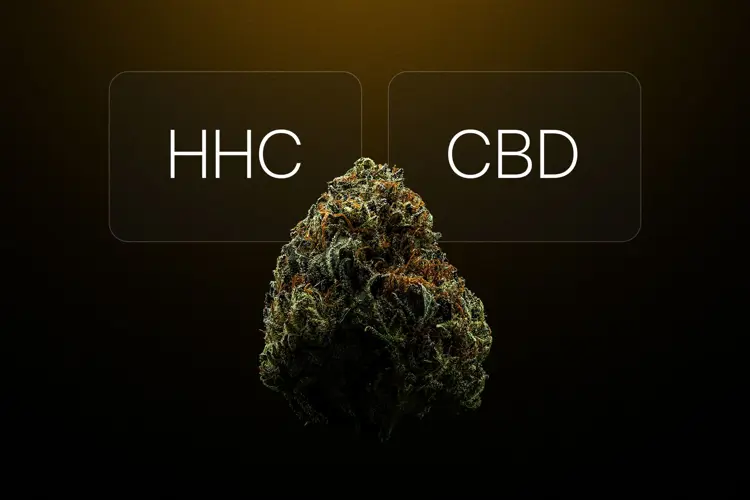
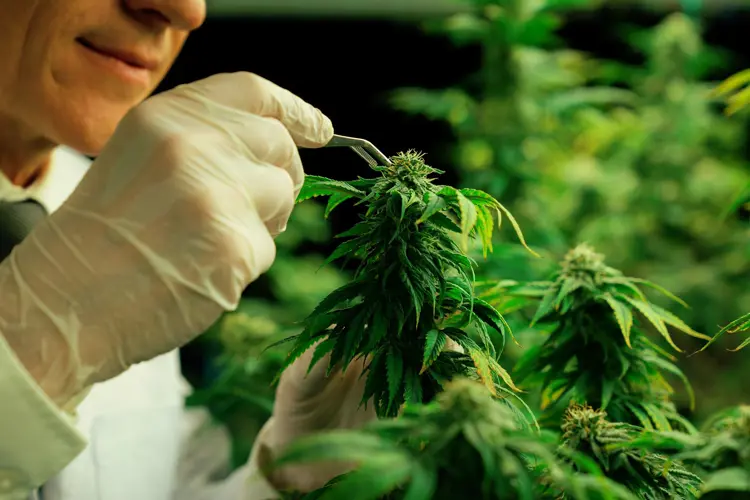

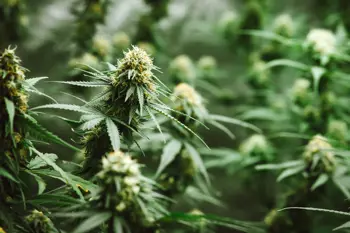
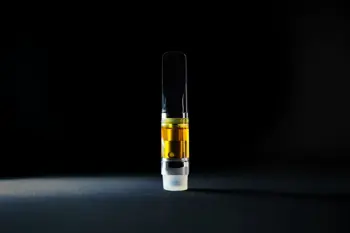
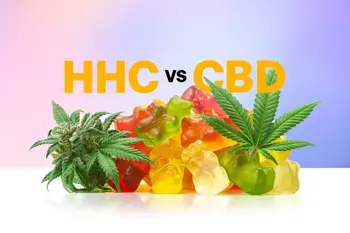
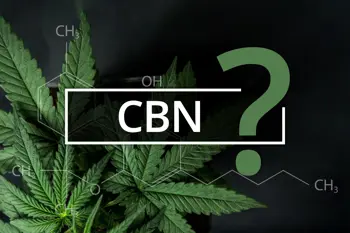
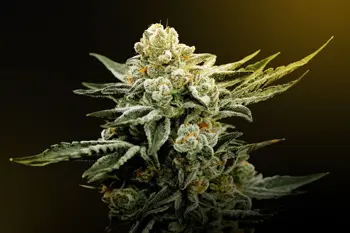
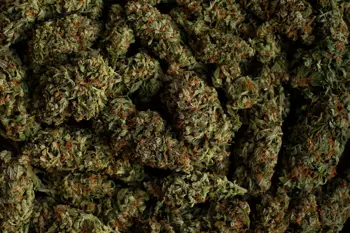
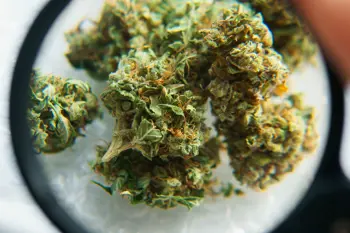
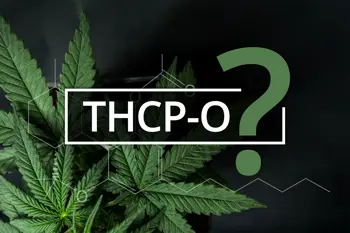
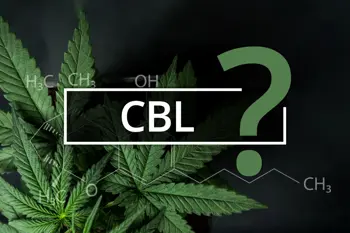
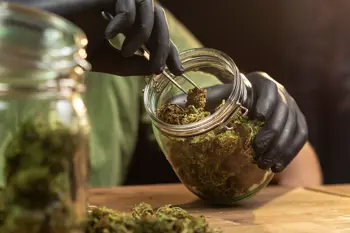
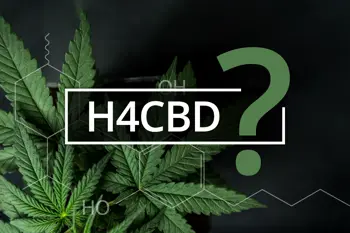
![Image for What Is THC-JD? Legality, Effects, Potency Explored [Update]](https://media.vaping360.com/images/what-is-thc-jd-thumbnail-20a40b517a.webp?imageType=Small)






